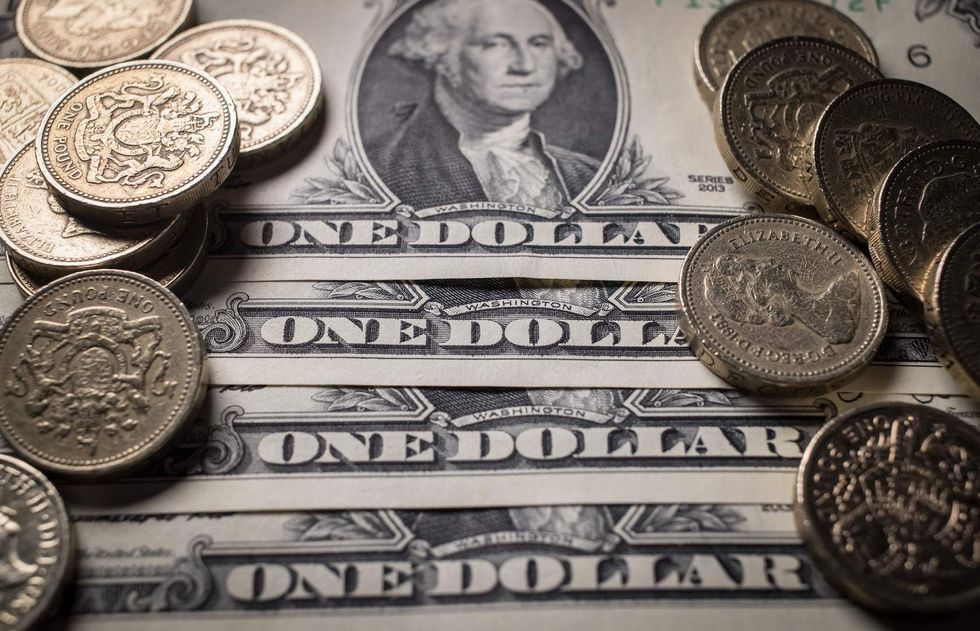The libertarian-leaning Cato Institute think tank recently highlighted the work of a group whose stated goal is to eliminate the use of physical currency — including paper currency — throughout the world. The group is called the “Better than Cash Alliance” (BTCA) and is funded by major contributions from companies such as Mastercard who have a vested interest in forcing as much of the world’s population as possible onto digital currency.
As Cato notes:
On its Twitter page, the BTCA describes itself as a “UN-based Alliance promoting the shift from cash to digital payments to reduce poverty and drive inclusive growth.” Promoting a shift sounds innocuous, but the Alliance’s literature is permeated by the idea that the goal of promoting the growth of digital payments justifies the means of forcibly restricting the use of cash. Created in 2012, the BTCA is currently funded by a mixed group of seven “resource partner” institutions. Some partners have reported giving $1.5 million per year.
The group was considered to be a major player in the Indian government’s stunning November 2016 decision to cancel its currency in favor of re-issued, primarily digital, currency, a move which had a shocking effect on the Indian economy.
Regardless of what you think about the seriousness of the threat posed by the BTCA to the idea of physical currency, make no mistake: powerful, well-funded forces are determined to push for a world that functions entirely on digital currency.
Already in the United States, possession of any substantial amount of cash is considered de facto evidence of criminal wrongdoing. Consider that federal law requires banks to immediately report any customer who withdraws more than $10,000 in cash from their own banking account to the federal government, so that law enforcement agents can promptly question the offending customer about their intentions and the disposition of the withdrawn cash. Note that moving an equivalent amount of digital currency from place to place carries with it no such reporting requirement, presumably because it is already easier for the government to track digital currency.
Additionally, law enforcement agencies have increasingly begun to treat the mere possession of large sums of cash as sufficient evidence of criminal wrongdoing to justify seizure of that cash under civil asset forfeiture laws.
Consider the story of 37-year old Tara Mishra, an exotic dancer who had over $1 million confiscated in 2012 during a routine traffic stop. Mishra began dancing at age 18 and diligently saved her earnings, hoping to one day afford a better life for herself. Finally having saved enough to end her exotic dancing career, Mishra planned to go into business with her friends Rajesh and Marina Dheri and gave them the cash to purchase a nightclub. The Dheris would own half the business and Mishra would own the other half.
But when the Dheris were pulled over by a Nebraska state trooper for speeding, the police confiscated the money, which was bundled in stacks of $10,000 in the trunk of the car. The state trooper took the couple and the money into custody on suspicion of illegal drug activity, even though there was no evidence of illegal drug activity in the car. A judge ordered a year later after a lengthy legal battle that Mishra was owed the money back, with interest, because the cash was confiscated without cause.
Ms. Mishra’s story illustrates the essential truth about possession of cash in modern America: if you have any substantial amount of it on your person, police will immediately seize it from you without any further proof of wrongdoing and require you sue them to get it back (a proposition that can be difficult for people who have just had all their available funds seized by the police). This forces ordinary Americans to account to the government for every penny of cash in their possession, and explain how they came to own it. Many stories like Ms. Mishra's do not have an ending that works out nearly as well for the cash owner; law enforcement officials seize millions of dollars in cash from Americans every year — more than burglars do — and the overwhelming majority of it is never recovered.
Of course, freedom from these sorts of hassles is the very reason some people prefer to own cash, or other physical currency. After all, any form of digital currency is subject to easy control or outright deletion at the discretion of a bank, the government, or any other person who can gain access to the right computer server. Increasingly, Americans are willing to tolerate these risks in exchange for the ease of digital currency, but many Americans still prefer good old fashioned legal tender or gold, which are still spendable as long as they are in a citizen’s physical possession.
At least, for now.




